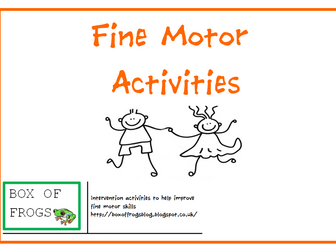Social Skills intervention programme
This programme is a short intervention intended for children in KS1 or for those who struggle to cope in social situations. <br />
<br />
Understanding of Social skills is an under pinning tool required throughout life. Identifying our own feelings and the feelings of others helps us to adapt in our ever changing world. It helps children work independently or within a group and react to situations appropriately.<br />
<br />
Programme contents - This is me, Friendship web, What do you look for in a friend, Show your appreciation, Being a good sport, Being a team player, Personal Space, Your space, Blow your own trumpet, Being confident, Getting on with others, Sorry, high five certificate!<br />
<br />
<br />
